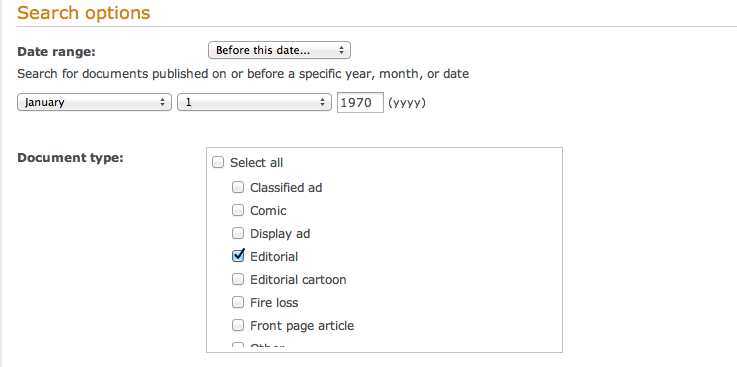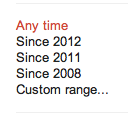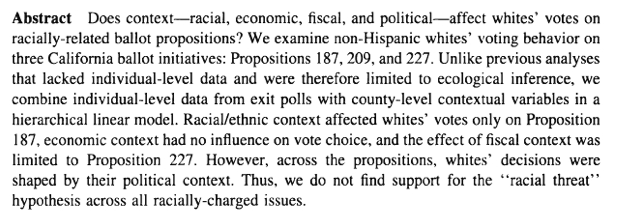Scavenger Hunt
The Technology Triathlon
How often do you use Google to find an answer to a question? Wikipedia? Bing? Ask.com? Yahoo search? What happens when the results simply fall short? In a society where running to a computer/smartphone/tablet for an immediate answer has become second nature, it is hard to fathom that this is not always the best option. Faced with finding the three items below, I was challenged to dig a little deeper, search a little smarter, and to blog by midnight. Here are my findings:
The First Task
1) An op-ed on a labor dispute involving public school teachers from before 1970
Like Eve in the Garden of Eden, I immediately gave into the bright alluring fruit that is Google. Despite being told that Google would not be enough, I simply couldn’t resist the temptation to at least give it a shot. I justified my foray into the realm of Google by making use of Google Scholar. I figured if I use my search wisely, there was at least some hope of me finding what I need. I began using Boolean operators to make my search as specific as possible, as depicted below:
Since I was also given a date, I decided to also create a custom date range to limit the results. This option is found on the left hand column and looks like this:
Even with a limited date range and the limited use of Boolean operators, none of the results matched the criteria for the article I was assigned to find. Quickly learning that my professor knows what he’s talking about, I head over to GMU’s library website. From there I went through the databases until I found ProQuest’s Historical Newspaper Database, where I chose the advanced search option:
And got very specific:

The search was then revised to include articles only from before 1970 in the editorial section of the newspaper.
From this search, I was able to procure the following two promising articles:
- Education: Florida Strike is a Test for the Militant Teacher by Fred M. Hechinger (February 25, 1968 from The New York Times)
- Public Employe[e]s: A Tougher Law is Only a Partial Answer by A. H. Raskin (February 9, 1969 from The New York Times)
2) The first documented use of solar power in the United States
While my earlier experience with Google Scholar did not result in success, I noticed that it did have an option for patents. While this may not give me the first documented use of solar power in the United States, if I can find a patent for solar panels or the like I can certainly get a reasonable date range to keep an eye out for. Making no way with Google Scholar, I move to the regular version of Google to hopefully get more general information to improve my search.
In just over 0.26 seconds, a host of webpages appears. I decide on a PDF entitled Green Jobs: Solar Power: Careers in Solar Power from a .gov site, which seems infinitely more credible than the poorly cited Wikipedia option. It is here that I discover the United States and Soviet Union first used photovoltaic cells in the 1940s and 1950s on spacecraft. Unfortunately, I do remember seeing another site (though not legitimate enough to trust as a final answer) indicating solar power began closer to the turn of the century. Once again, my professor was correct. It was time for a new approach.
I once again find myself at the GMU library’s website, faced with a myriad of search options. I was not sure exactly where to begin, so I once again turn to ProQuest. After all, it was key in meeting the first article requirement. However, despite my initial hope, I was soon overwhelmed by a myriad of databases all toting science-based titles that may or may not contain the article I am searching for. I settle on the general ProQuest search form:
After seeing mostly articles from the 2000s citing recent research, I decided to use the sort by date feature to make the oldest article appear highest up on the search results. This did absolutely nothing in terms of helping me find what I needed. In fact, it left me confused and frustrated. I then ran the following search through the JSTOR database:
This search is a normal search for the keywords in the first set of parenthesis, but excluding the word “system” since the term “solar system” appeared often on an earlier version of the search. It also limits articles to the English language. This search was created via the advanced search option.
I then found this gem, which on page 328 mentions spacecraft as the first use of solar power once again. Even despite this, I feel that solar power could not have just sprung up overnight and suddenly made a key component of expensive equipment that would directly influence political power. In one final, desperate move, I returned to Google. (By now the cold that had been threatening to surface had begun its barrage of sneezing fits and subsequent coughing, thus resulting in a particularly low tolerance for frustration.)
With the last of my coherent thought, I decide on searching the “history of solar power.” Just like that, I find the answer I had been looking for all along: a timeline of solar energy from a reputable website (at least I hope a .gov website would be considered legitimate). Then it just became a matter of manually scanning the timeline for relative points. After restricting the parameters to only include uses in the United States, I found the following point:
The Third Task
3) The best resource for the history of California ballot initiatives, including voting data
And then there was one. The very one I had been dreading the most. What the heck are ballot initiatives? Is that something I was supposed to learn? What is my solution to my lack of knowledge? To give in and Google it of course. I at least quickly scroll past Wikipedia and find the following information from the Washington Post’s website:
After jumping this hurdle, I continued in my searching efforts. I proceed to California’s state government site and enter “ballot initiatives” in their search bar. No luck. With my head hanging low, I make one last feeble attempt and plug the same search into JSTOR’s search bar. Just seven entries down, I see exactly what I had been looking for:
Thrilled, I clicked as fast as I could. My mood only improved when I saw what was next:
Sure, this paper isn’t a broad history of ballot initiatives for the state of California, but it does provide in depth analysis of voting patterns. For me, this is victory.
Useful Search Tips
Try to use an advanced search.
Check the help section to see if there are in search tips and tricks.
Refine the parameters for dates and types of publication.
Start broad, get specific.
Keep in mind the legitimacy of the items your search returns.







